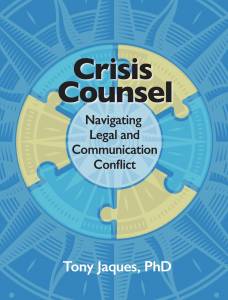Why marketers need to take more care with reputation
by Tony Jaques, Director of Issue Outcomes Pty Ltd, for people who work in issue and crisis management
Reputation is a critical company asset, yet marketers too often create what gets to be called a “PR disaster.”
While that label makes for an easy headline, PR people usually aren’t responsible for a marketing blunder, though typically they get drafted in to clean up the reputational damage. Three recent incidents – and the contrasting ways they were handled – highlight the risk to organizations.
In the run-up to Christmas, Kmart launched a drawstring bag designed to store a seasonal ham with the punning slogan ”Merry Ham-mas” on the front.
Given that it was seen in store just weeks after Hamas invaded Israel, the Australian Jewish Association posted a picture online, describing it as “really not a good look.”
Within hours, management advised the bags were being withdrawn from stores and their website.
“We got it wrong on this occasion, and we apologize unreservedly. When designing this product, we clearly didn’t think through all the implications and the product has been removed from sale.” AJA President David Adler praised the company for its speedy response, and the threat quickly passed.
Compare this with Zara copping backlash last week over a social media ad with a model holding a mannequin wrapped in white plastic, pictured in an artist’s studio against a background of damaged statues and broken plasterboard. Critics said it was similar to images emerging from Gaza following Israeli bombing and some called for a boycott.
Although this campaign too was planned long before the Hamas attack, the photoshoot was taken down. However, Zara’s online response had no apology and seemed to blame the critics. “Unfortunately some customers felt offended by these images and saw in them something far from what was intended. Zara regrets that misunderstanding.”
Then there was the debacle earlier in the year when transgender actor and influencer Dylan Mulvaney posted an Instagram video showing one-off Bud Light cans featuring her face, created by Anheuser-Busch brand marketers.
While VP of Marketing for Bud Light, Alissa Heinerscheid, said it was an effort to appeal to a younger and more diverse audience, conservative activists instigated a widespread boycott campaign. The result was sales fell by up to 26%, the company’s shares lost more than $4 billion, and Bud Light lost its position as America’s top beer.
In an apparent effort to distance management from blame, Ms. Heinerscheid and her boss Daniel Blake, were placed on indefinite leave, and North American CEO Brendan Whitworth asserted he hadn’t known about the promotion until after the backlash erupted. He emphasized the personalized can was “not a formal campaign or advertisement” and that they would revamp their process “so senior leaders are more involved in marketing decisions.” So much for taking responsibility and standing by your own staff.
It’s no surprise that the long and ignoble history of misguided, ill-timed or just plain dumb marketing campaigns can lead to needless reputational damage, which the media love to portray as a “PR disaster.” For example:
- When an online catalog for H&M featured eight-year-old black boy Liam Mango in a hoodie marked “Coolest monkey in the jungle.” Facing international condemnation, H&M’s third attempt at an apology finally accepted responsibility after previous efforts relied on “we are sorry if you were offended.”
- When QANTAS sparked an online firestorm after marketers launched a #Qantasluxury competition to win First Class pajamas by describing “your dream luxury inflight experience” just when the airline had grounded its entire fleet in an industrial dispute. The resulting stream of abusive tweets was entirely predictable.
- When Pepsi was slammed for its notorious commercial showing model Kendall Jenner apparently defusing a confrontation between police and Black Lives Matter protesters by handing a cop a can of sugary soft drink. As Martin Luther King’s daughter Bernice remarked; “If only Daddy would have known about the power of #Pepsi.”
Of course, PR professionals and corporate communicators can make mistakes too. But, given their wide audience, marketers need to think more about how their next “bright idea” might potentially damage the organization’s reputation.
A Parting Thought
Social media is a contact sport.
– Margaret Molloy
“Crisis Counsel confirms Tony Jacques’ position as one of the industry’s foremost experts on issues and crisis management. In addressing the complex interactions between legal and communication crisis responses, Dr. Jacques provides riveting case studies and practical advice. It highlights the financial and reputation risks of not effectively integrating communications and legal counsel. It should be on every communications practitioner’s reading list, and companies should insist their in-house and external legal counsellors read it.” – Noel Turnbull, Former Chair of Turnbull Porter Novelli, Adjunct Professor, RMIT University.
Learn more about Reputation Risk, CEO apologies, and Crisis communication in Tony Jaques’ new book, Crisis Counsel: Navigating Legal and Communication Conflict.
Click HERE to find Tony’s book at Amazon.com

